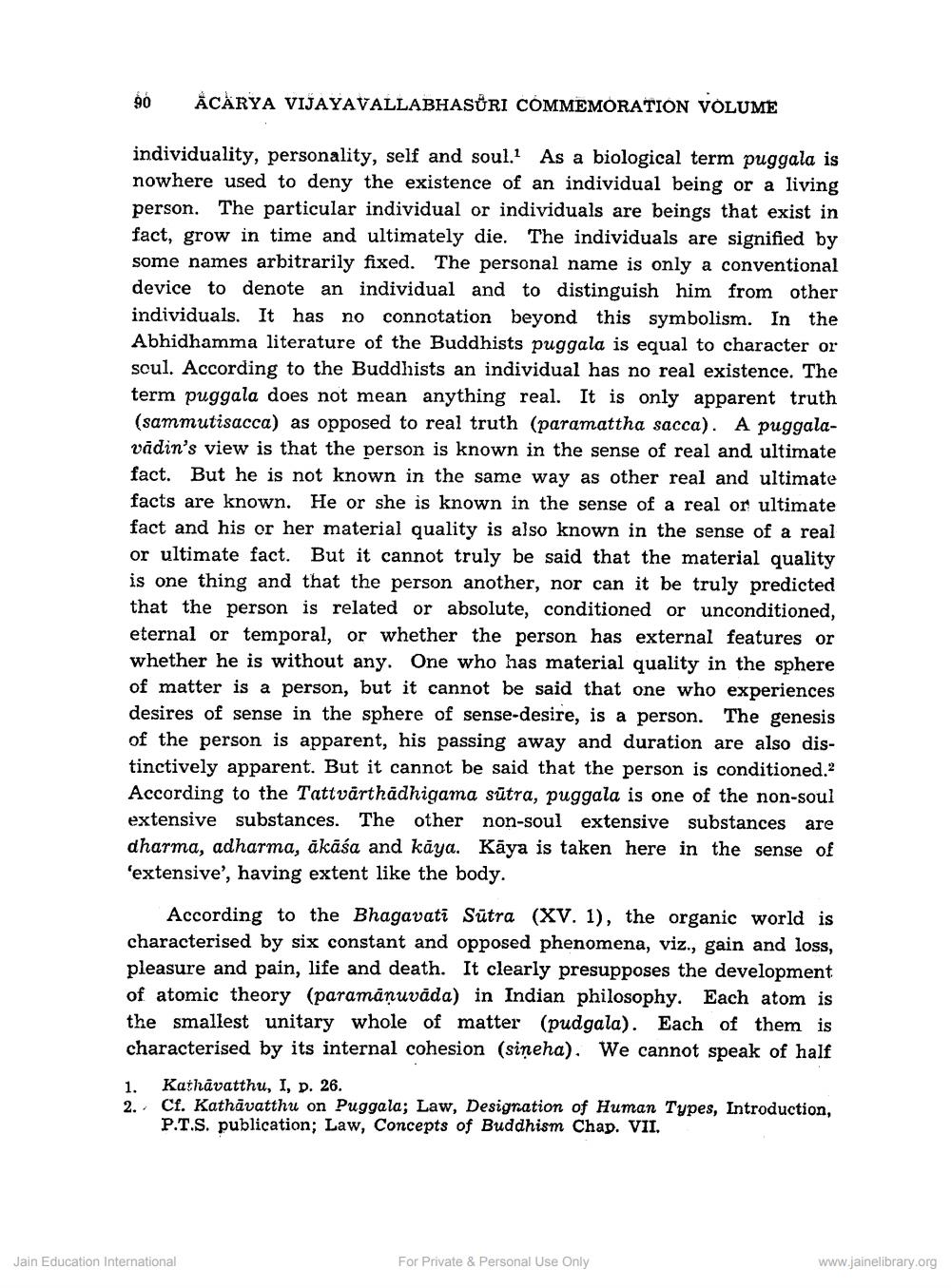________________
90
ÂCÀRYA VIJAYAVALLABHASŰRI COMMEMORATION VOLUME
individuality, personality, self and soul. As a biological term puggala is nowhere used to deny the existence of an individual being or a living person. The particular individual or individuals are beings that exist in fact, grow in time and ultimately die. The individuals are signified by some names arbitrarily fixed. The personal name is only a conventional device to denote an individual and to distinguish him from other individuals. It has no connotation beyond this symbolism. In the Abhidhamma literature of the Buddhists puggala is equal to character or scul. According to the Buddhists an individual has no real existence. The term puggala does not mean anything real. It is only apparent truth (sammutisacca) as opposed to real truth (paramattha sacca). A puggalavādin's view is that the person is known in the sense of real and ultimate fact. But he is not known in the same way as other real and ultimate facts are known. He or she is known in the sense of a real or ultimate fact and his or her material quality is also known in the sense of a real or ultimate fact. But it cannot truly be said that the material quality is one thing and that the person another, nor can it be truly predicted that the person is related or absolute, conditioned or unconditioned, eternal or temporal, or whether the person has external features or whether he is without any. One who has material quality in the sphere of matter is a person, but it cannot be said that one who experiences desires of sense in the sphere of sense-desire, is a person. The genesis of the person is apparent, his passing away and duration are also distinctively apparent. But it cannot be said that the person is conditioned.2 According to the Tattvärthādhigama sūtra, puggala is one of the non-soul extensive substances. The other non-soul extensive substances are dharma, adharma, ākāśa and kaya. Kāya is taken here in the sense of 'extensive', having extent like the body.
According to the Bhagavati Sūtra (XV. 1), the organic world is characterised by six constant and opposed phenomena, viz., gain and loss, pleasure and pain, life and death. It clearly presupposes the development of atomic theory (paramánuvāda) in Indian philosophy. Each atom is the smallest unitary whole of matter (pudgala). Each of them is characterised by its internal cohesion (sineha). We cannot speak of half
1.
2.
Kathāvatthu, I, D. 26. Cf. Kathāvatthu on Puggala; Law, Designation of Human Types, Introduction, P.T.S. publication; Law, Concepts of Buddhism Chap. VII.
Jain Education International
For Private & Personal Use Only
www.jainelibrary.org




